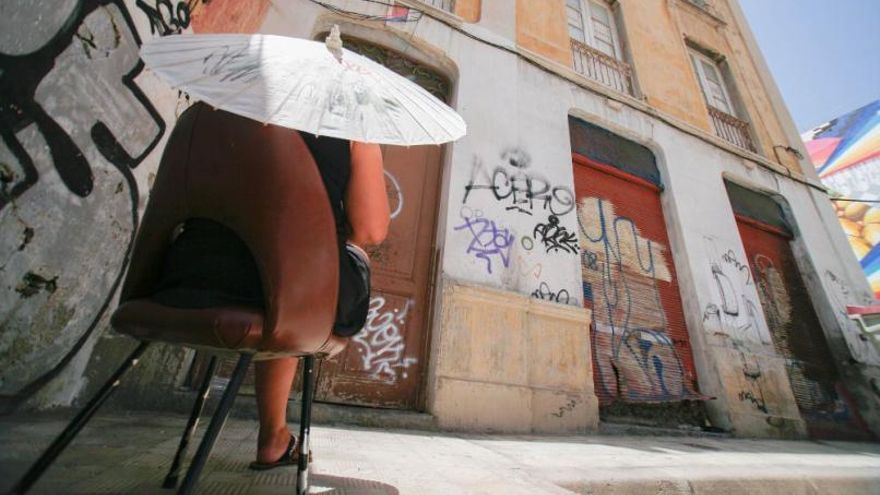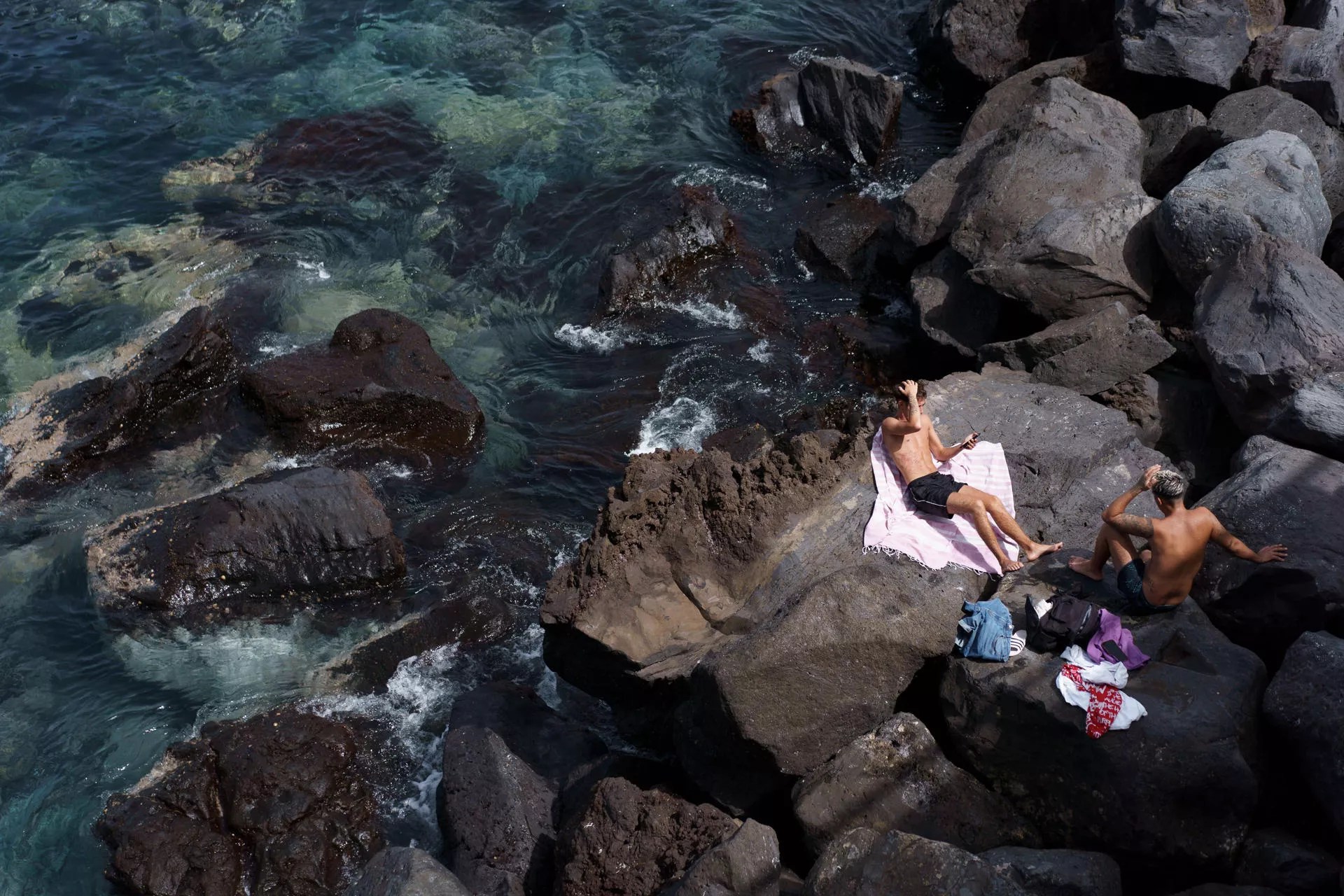
The Council of Tenerife It is the first public institution in the Canary Islands thate commitment to abolish prostitution. It does so within the framework of a commitment to equality and the fight against gender violence by considering prostitutes victims of this social scourge. This is reflected in the recent manifesto, signed unanimously by all political groups, on the occasion of Women’s Day, on March 8. The declaration establishes “the promotion of public policies in labor, justice and social policy that offer an effective response and a way out for women who find themselves in this situation.”
The island councilor for Social Action, Marián Franquet, explains that “this is an old feminist debate with discrepancies within feminism.” One line proposes regulation and bringing out this work like any other. Another option, that of the Cabildo of Tenerife, considers that they are not sex workers but rather that women are exploited, that they are not free to make decisions, and even link the activity to human trafficking. “A form of gender violence”, sentences Franquet
The counselor explains that “little by little, based on a lot of dialogue, a uniform discourse on this phenomenon has been built.” She values the counselor that “the first thing was to make a diagnosis and that is why we commissioned a study from the University of La Laguna.” Franquet highlights the need to have data and to be able to act rigorously. “Social action has to be based on objectivity,” he notes. She adds that “this work on gender-based violence at an early age reflects an increase in pornography among young people as an initial step towards prostitution.”
raise awareness
Regarding the policies to follow to reach abolitionism, Franquet points out: «It depends on the levels of competence. The first is from the state because it covers the criminal field. Regarding the role of the Cabildo, he clarifies: «We are going to work in two lines». On the one hand, the proposal is to treat women as victims. Hence initiatives such as the first floor specifically for them “which we opened last year.” On the other hand, “information campaigns, awareness, prevention and dissuasion of consumption, especially young people.”
But also, if necessary, stresses Franquet, “you have to penalize.” Also to the client because “he exercises gender violence with a woman who does not want to be with him.” He provides a fact: «Spain is the third country in the world and the first in Europe, after surpassing Italy, in the consumption of prostitution». Franquet concludes: “It will be a communication task to explain it, but if it is not enough and you have to penalize, it is penalized.”
Public complaint.
In the manifesto for Women’s Day, the Cabilo makes it clear that it is committed to denouncing, through institutional channels, the brothels and premises dedicated to the sexual exploitation of women on the Island. The document concludes that “sexual exploitation it is one of the most terrible forms of violence against women; For this reason, we make a call to build a great political and social consensus aimed at the abolition of prostitution in our country».
The study of the ULL.
The insular area of Equality, chaired by the councilor Priscila de León, commissioned a study last year from the University of La Laguna to analyze the relationship between gender-based violence and the consumption of pornography at an early age on the Island. The intention was articulate, based on the document, a public policy roadmap as the first plan to prevent this gender-based violence among young people. The work, directed by Dr. Esther Torrado, was based on interviews with 2,432 people between the ages of 16 and 29 with four discussion groups in which teachers from secondary schools participated, as well as parents of ESO, Baccalaureate and Training Cycles.
Conclusions.
Among the conclusions, he highlighted the importance of sexual affective education from childhood, since its absence has turned pornography into a school of patriarchal sexuality whose messages contribute to normalizing violence through its eroticization.
Among the data, the director of the investigation highlighted the fact that 6 out of 10 boys consume weekly, while the figure for girls is reduced to 3 out of 10. The former argue that they see more pornography for their personal enjoyment and sexual arousal, while the latter claim to do so more out of curiosity and information. In addition, she revealed that 52% of all minors, young people and adolescents resolve their doubts about sexuality through the Internet and that 29% of women have consumed pornography compared to 70% of men. The majority of young people and adolescents consume pornography at the age of 12.
As explained by Esther Torrado, regarding the qualitative study, that is, the one emanating from the discussion groups, it follows that there is currently a great lack of knowledge among adults of the formats and contents of current pornography. And in these groups, a link is also established between the consumption of porn at an early age with sexist violence and the objectification and hypersexualization of women.
Torrado, who recalled that pornography “is a multimillion-dollar international business,” concluded that the absence of good sexual-affective education and the start of early and continuous consumption of pornography will notably influence socialization and adulthood and in the relationship between men and women. Through this continued consumption, learning models are acquired that move away from equality and reproduce sexism, violence and domination over women through studied processes of objectification and hypersexualization.
For her part, Priscila de León said that “in the current context, with the proliferation of platforms, social communication networks of all kinds and the dizzying rise and technological development, it is more necessary than ever to have tools that allow a rigorous analysis , adapted to the situation. Access to the Internet at increasingly younger ages coupled, in many cases, with a lack of real control by responsible adults is leading to the consumption of pornography among an increasingly younger population that, on many occasions, constitutes his first contact with sexuality”.
For this reason, he stated that “we wanted to give families and teaching professionals an important space within this study, involving them not only in detecting the situations that are being generated, but also in the search for solutions”. He also stressed “the importance of prevention in the field of equality and the prevention of gender violence, where the Cabildo de Tenerife has an important network of resources, among them, those destined to attend to women and minor victims. This is the case of the specialized service to care for women who are victims of sexual assault or the service for prostituted women”.
Parliament gives the green light to the initiative of the Progressive Pact to abolish prostitution and trafficking
The Plenary of the Parliament of the Canary Islands has unanimously approved a Proposal Not of Law (PNL) of the Socialist Parliamentary Group together with the rest of the groups that support the Government of the Canary Islands that promotes the abolition of prostitution, as well as measures against trafficking and exploitation sexual.
The initiative, defended from the PSOE by the deputy Pino González and coinciding with the celebration this week of International Women’s Day, urges the Government of Spain to draw up a law on trafficking in human beings for the purpose of sexual exploitation that has as its objective the abolition of prostitution in our country.
It also calls for awareness-raising and training measures to be promoted on the violation of human rights caused by trafficking in human beings for the purpose of sexual exploitation and in favor of the abolition of prostitution.
In addition, the proposal requests that actions be carried out to combat the causes that force women to prostitute themselves and to develop public policies aimed at providing real and comprehensive alternatives for their labor and social reintegration, guaranteeing women in a situation of prostitution the rights and resources necessary for their protection, attention and reparation.
During the debate, the socialist deputy recalled that Spain is one of the countries where more women and girls are prostituted, and that, according to data provided by the United Nations Organization (UN), it heads the list of European Union countries , with 39% of men who have used prostitution at least once in their life.
González also warned that the Canary Islands is one of the autonomous communities that experiences this problem the most, and where it seems to be the most invisible. “According to studies carried out on prostitution in the islands, some 3,000 women work as prostitutes in the Archipelago, and almost all of them have been victims of gender-based violence and many have suffered cases of sexual abuse and harassment during their childhood.”
According to the deputy, from the Socialist Parliamentary Group they consider that equality between women and men “will continue to be unattainable as long as women, girls and boys are bought, sold and exploited, so eradicating sexual exploitation and abolishing prostitution are an urgent priority ”
For González, the sexual exploitation of women and minors is the “cruelest and most violent” manifestation of structural inequality between women and men, and one of the most denigrating manifestations that threaten the freedom, integrity, dignity and security of millions of people around the world and a violation of human rights.
















